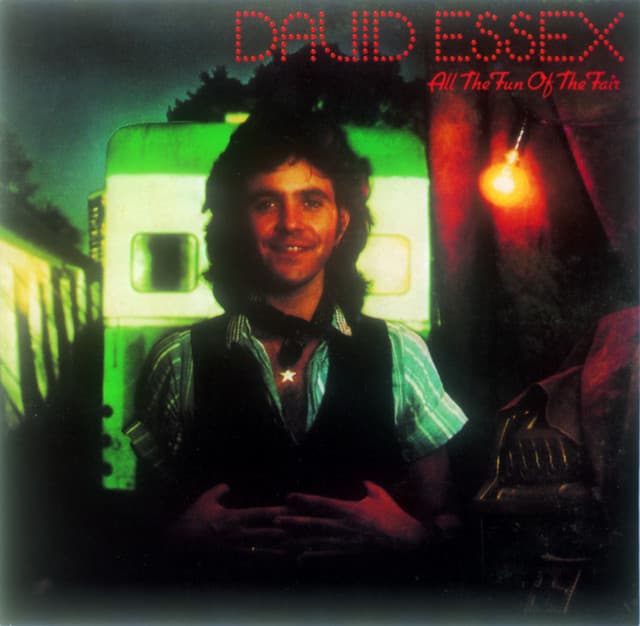
The Velvet-Voiced Poet and the Cynical Promise
For those who lived through the glam and pop turbulence of the mid-1970s, David Essex was more than just a pop star; he was an artistic polymath—an actor, a songwriter, and a true romantic idol. He possessed a brooding charisma and a voice capable of both rock-and-roll snarl and tender vulnerability. It is the latter quality that shines through, tinged with a weary cynicism, on the track “Won’t Get Burned Again,” a hidden gem from his third studio album.
The song was released in 1975 on the album All the Fun of the Fair, which itself was a major commercial triumph, climbing to a peak of Number 3 on the highly competitive UK Albums Chart. While the album contained the massive, chart-topping single “Hold Me Close,” tracks like “Won’t Get Burned Again” gave the LP its sophisticated, reflective edge, showcasing Essex’s maturation from a teen idol to a serious musical artist. The album’s success was built on the foundation laid by his previous chart successes, particularly the raw, iconic “Rock On,” and his starring roles in the era-defining films That’ll Be the Day and Stardust.
“Won’t Get Burned Again” was not released as an official A-side single, a fate that often befalls some of the best, most complex album tracks. Its failure to chart as a stand-alone single in the UK or the US is less a reflection of its quality and more a testament to the fact that it was overshadowed by the two Number 1 singles that bookended it: “Gonna Make You a Star” from his previous album and the mega-hit “Hold Me Close” from this very album. Yet, for fans who bought the whole record, it became a cherished deep cut, revealing a darker, more cautionary side of the beloved star.
The meaning of the song is etched in the wisdom earned through heartache. It is a quiet, almost defensive pledge made by the narrator to himself and perhaps to a new, uncertain lover. The lyrics paint the picture of a man who has been used and tossed aside in previous relationships—the titular “burning.” The commitment he makes isn’t a promise of eternal, reckless passion, but a practical, world-weary vow of self-preservation: “I won’t let you see the tears / I won’t get burned again.” It’s an acknowledgement that while he is willing to risk a new connection, he has built up emotional walls, determined to keep his vulnerability—his “secret pain”—locked away.
Musically, the song is a compelling blend of Essex’s early-seventies pop sensibility and a subtle, brooding rock complexity. Produced, like much of his best work, by Jeff Wayne, it features the lush, dramatic arrangements that defined the era, yet underpins them with a solid, almost psychedelic rock groove. For us older listeners, this track instantly transports us back to the time of album-oriented rock, when we would sit with the gatefold sleeve, listening to every track in order. “Won’t Get Burned Again” wasn’t the track to play at the school disco, but it was the one you played alone in your room, contemplating the complicated, often painful journey of love, realizing that even the velvet-voiced poets of the day understood that sometimes, the hardest thing to do is to simply survive the fire.